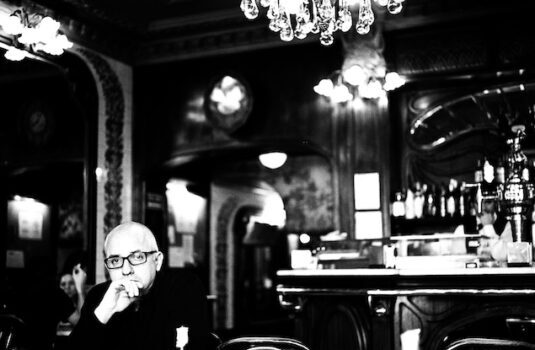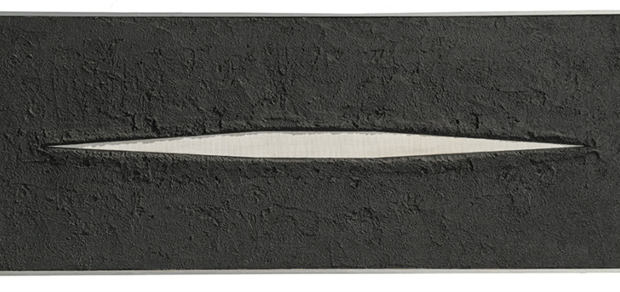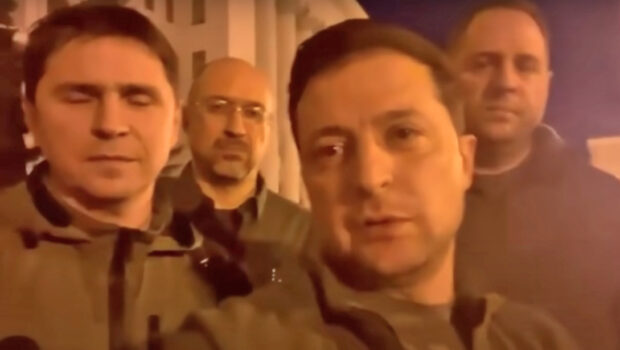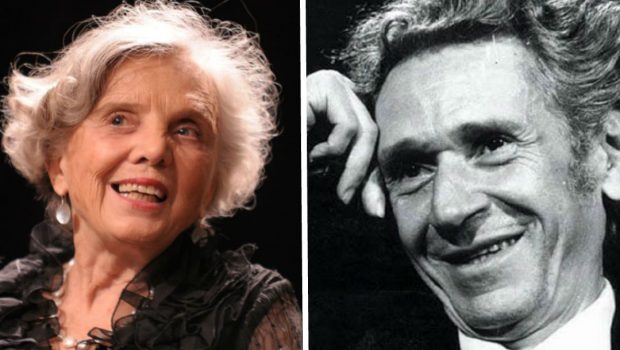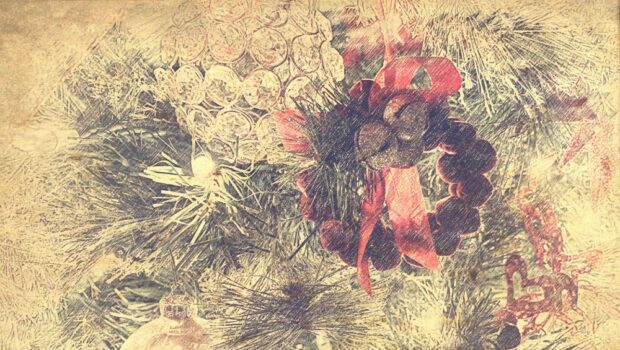The Nature of Truth
Sergio Troncoso
Helmut Sanchez yanked the steel ring of the creaky wooden door and stepped blindly into the dark castle that was Yale’s Sterling Library. He pushed open the inner foyer door. A puff of steam hissed from a radiator in the shadows. The air inside was cold and damp. In front of him, two lines of students waited to check out books at the circulation desk under the watchful eyes of the mosaic of the Goddess of Knowledge. Another line surrounded the copy machines, which flashed and droned like baby dragons trapped in boxes. Without stopping, Helmut displayed his ID to the bored security guard and veered into the first floor stacks, toward Mr. Atwater’s office. Jonathan Atwater was the assistant librarian responsible for interlibrary loan requests.
“Hello?” Helmut said, with a studied meekness, knocking twice on the oak frame next to the opaque glass, like a gumshoe’s door. A genteel older gentleman, about forty-five, hunched over Gabriel García Márquez’s Cien años de soledad, his spectacles on the bridge of his pink nose. Puffy light brown eyebrows and a head of thin gray hair distinguished Mr. Atwater’s patrician face. He wore a candy-apple red bow tie and a perfectly starched blue oxford shirt. A dozen books, in German and Spanish, were fastidiously arranged on his desk in front of him like a mini-fortress. Helmut noticed a small red leather edition of Goethe’s poems atop a stack of white papers and manila folders.
“Helmut. Please, come in,” Mr. Atwater said, warbling just a note higher than normal. “Sit down. Here. Take a look while I bring you a cup of coffee. Bought it on Saturday at an old bookstore in Meriden. Only thirty dollars for that edition!”
“But I was on my way–” Helmut protested weakly, but Mr. Atwater was already out the door and bounding down the hall. Helmut glanced at the poetry book in his hand, a leather-bound edition with gilded pages from the late nineteenth century. He reluctantly sat down on the black wooden chair emblazoned in gold with the crest of Yale. Lux et Veritas.
“This is what you came for, I presume,” Mr. Atwater said, striding into the room, handing Helmut four volumes, and placing a Harvard-Radcliffe mug of coffee on the edge of the desk in front of Helmut.
“Thank you very much, Jonathan.”
“Here’s the confirmation for Geschichte und Literatur Österreichs, just sign at the bottom.”
Mr. Atwater handed Helmut two sheets of paper, the first a barely legible pink carbon of Helmut’s original request, the second an agreement to return the books by such-and-such a date to Yale, which would return them to the library or archive that owned them. “What a quest for those!” Mr. Atwater continued. “At least we finally found them.”
“Thanks.” Helmut drank half a mug of coffee and pushed the four volumes into his backpack. All morning his head cold had dizzied him at the oddest moments.
Suddenly Helmut had the eerie feeling that something was wrong, that he had seen a mistake but had not recognized it for what it was. He signed the second sheet of paper. He folded it back and glanced at the first sheet. Ach! he thought. He had originally requested Österreich in Geschichte und Literatur. There it was, in fading blue ink. This was the wrong literary review for the years 1957, 1961, 1965 and 1970. Mr. Atwater had made a rare mistake. Helmut’s shoulder’s slumped. He felt bloated and depressed. He handed back the sheets to Mr. Atwater.
What would be the point of telling Mr. Atwater he had wasted a month looking for the wrong review? Helmut gulped down the rest of the coffee and stood up. “Thanks again. I’ll give you a call next week.”
Helmut smiled politely and marched toward the circulation desk. Outside, it was gusty and warm for March. He might as well peruse these four volumes of Geschichte und Literatur Österreichs. He didn’t have much to lose. If Mr. Atwater was right, they were obscure, if not rare, reviews. What would have been the point of deflating Atwater’s enthusiasm when precious few cared as deeply about books anymore? Helmut’s back ached, but the bike ride to Orange Street was quick and his backpack didn’t seem too heavy.
***
Not until a few weeks later on April 29th did Helmut open the 1961 volume of Geschichte und Literatur Österreichs. The Thomas Bernhard article for his boss Professor Werner Hopfgartner had been mailed weeks ago. The semester was near its end, and finals would begin in a week. Helmut was putting the final touches on Christa Wolf. Before Hopfgartner left for his summer vacation of hiking on the Alps, the professor and his assistant would bounce the essay back and forth a few times. Helmut had indeed discovered a few articles in Geschichte und Literatur Österreichs he might include in the professor’s Compilation.
Before his retirement, Hopfgartner envisioned the Compilation as a synthesis and expansion of his ultimate views about literature and philosophy. German culture in the nineteenth and early twentieth century, the professor wrote, had achieved a community as distinct about the good and the right as that of classical Greece. What the professor’s clear and convincing prose advocated, in an almost revolutionary tone and certainly with a poetic cadence, was the creation of a set of real community values. Then, and only then, would adherence to such values be authentic to a culture. Individuals in such an authentic society would blossom into true human beings, the full potential of man. Anything less would be “fakery” or “decadence” or “the moral abyss of modernity” or “the bleakness of the soul.” Modern society, Hopfgartner concluded, was on the bleak and lonely road of pernicious individualism and nihilistic hedonism.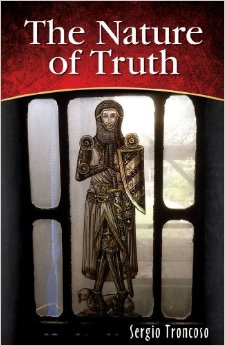
Wednesday night-Thursday morning Helmut was reading an article in Geschichte und Literatur Österreichs on the American revival after the Kennedy election. It was 2:30 a.m. and Helmut desperately needed a distraction from the brain chatter that kept him awake. Suddenly, in the table of contents of the second quarter issue from 1961, he noticed that a W. Hopfgartner had written a lengthy, three-page letter to the editor. Helmut’s heart leapt. What a fantastic coincidence! he thought. Perhaps Mr. Atwater’s efforts had not been in vain.
Helmut didn’t immediately read the letter, and instead checked the biographical lines at the end. The author was indeed a W. Hopfgartner who had also been a professor of literature. So there was a chance, however slim, that this W. Hopfgartner was the selfsame Werner Hopfgartner who now employed him.
The year 1961 was the year Professor Hopfgartner had arrived in America as the newest tenured professor at Smith College. After the Wall had gone up in Berlin, a spiritual incarceration had been plastered atop the existential malaise of the Continent. A double burden, Hopfgartner had once mused to his research assistant, which had simply been too much to bear. Helmut dropped the 1961 volume into his backpack. He would copy it tomorrow. Maybe he’d read it over the weekend. The Christa Wolf final rewrite had been delayed long enough. Helmut turned off his reading lamp and reset his alarm clock.
***
The sun was bright overhead by the time Ariane Sassolini, Helmut’s girlfriend, drove him back to Orange Street, about a twenty-minute drive from her apartment in Hamden, Connecticut. They had spent another delicious Saturday night together. Helmut’s bicycle was still locked to the backyard fence. His apartment upstairs was quiet, clean, empty. Finally, he had a little time to relax and be peacefully alone. He changed into shorts and a T-shirt, and bounded down the stairs. He bought a copy of the Sunday New York Times at the grocery store on Pearl Street. This was definitely a day for the back porch. He shoved open the kitchen door, which he rarely opened, and it led, through a murky and filthy hallway, to the back staircase and to another rickety door with peeling lime-green paint. Beyond this second door was the back porch of the third floor. Tender, mint-green leaves had sprouted from the old elm that hovered over the porch like a gnarled hand. Last year’s leaves—dried-up, yellow-brown and crunchy—were packed into piles in each corner.
Helmut dragged out an old beach chair, a mug of coffee with milk, a milk crate to use as a small table, the newspaper and a stack of photocopied articles, including W. Hopfgartner’s “Why I Am Neither Guilty Nor Ashamed.” The chair was as comfortable as he remembered it had been. A perfectly cool breeze meandered in from the north. The air was finally dry after the rainstorm last night. A squirrel pranced across the porch railing, unafraid. He pushed the newspaper away and refilled his coffee mug and settled himself on the porch again.
“Why I Am Neither Guilty Nor Ashamed” was short enough, just three pages. Helmut started to read it. Immediately his stomach twisted into a knot. His left foot, dangling over the railing, at once stopped bouncing to an unknown beat. The letter was a response to a prior issue of Geschichte und Literatur Österreichs. That previous issue had been dedicated to expurgating Austria’s complicit role in the Anschluss and the Nazi atrocities of the Second World War. Of course, it was true that the cultured citizens of Vienna had cheered the triumphant Adolf Hitler on Währingerstrasse with an evident proto-fanaticism. And who didn’t already know that the dreaded SS had been composed of more Austrians than Germans?
In any case, the letter from this W. Hopfgartner derided all such pandering as “weakness and indecision.” Vague “foreign influences” were at work. It declared, in a staccato prose, that Austria had done nothing wrong in the war. In fact, the premise of the war had been “correct” in any case. Only its “practical implementation” had been distorted by the excesses and digressions of a few idiots. What had been this correct premise? The letter mentioned only an amorphous “authentic value system” for the German people. Only with this value system would the genuine Teutonic character be realized, in itself the highest embodiment of man. The rambling letter ended with a call to all Germans and Austrians, especially the new generations coming of age and those about to be born in the next decade, the future leaders of the Third Millennium.
“Rid yourselves of this guilt and this shame!” the letter exhorted its readers. “Believe not, in such a blind fashion, these accusations of what your parents did during the war. These lies will emasculate you. The German self will thus be destroyed! The great German spirit, so corrupted by guilt and shame, will not even be capable of correcting past excesses. How will we ever soar back to our splendor, creativity and productivity? This is the only way. A future free of guilt.”
Helmut Sanchez felt sick to his stomach. How could anyone have written this garbage, in 1961 or at any other point after the war? What kind of sick mind would rationalize away this massive moral black hole? Millions of Jews murdered simply because they were Jews. Millions of gypsies and Catholics and countless political prisoners and so-called subversives slaughtered by a regime gripped by a frenzy of murderous thinking. And this, exactly, was what had always troubled Helmut about the Holocaust and the war in general. That Germans, he felt, had a tendency to think too far, to an abstract and rigid self-righteousness that could all-too-easily devalue the simple aspects of daily life. Such a murderous abstractionism could be used to justify crushing something today for the sake of an escapist ideal of a far-off tomorrow.
Of course, the student Marxists at Freiburg were also like this. Religious terrorists who killed in the name of God were no different. So this fanaticism of the ideal was not limited to Germans, nor to fascists, nor even to the field of politics. It was a beast of the mind! Helmut thought. Elusive. Multifarious. Immortal.
Helmut had once dated a younger student from Karlsruhe, Stephanie Henke, a special girl. At a concert, she had been so overwhelmed by Beethoven’s allegro assai conclusion to the Ninth Symphony that she cried and shrieked non-stop into the deathly silence at the end of the concert. An incredible orgasmic fury! What was even more shocking was that those around her, the prim and proper of Freiburg, approved of this primeval release with their admiring looks. Apparently this wild girl had really understood the heart of the music. Little did they notice the desperate gleam in her eyes, the spasmodic little twists of her head processing in a rapid-fire loop, the slash scars on her wrists.
During finals the previous semester, Stephanie had locked herself in the bathroom and screamed, “I will die a complete failure!” After a tense hour, Helmut had forced open the door and saved this beautiful creature from herself. So Helmut understood only too well that this murderous thinking was still pervasive and even part of his blood.
But what was his blood? Who was Helmut, really? That was the question that had tormented him all his life. Helmut Sanchez had always hoped his Mexican blood would save him from a free-fall into his German heritage. Yet certain parts of this heritage also captivated him, especially German philosophy and poetry. So instead of saving him outright, these mixed legacies confused him. He had never really felt at home with German culture, but in many ways he had harbored the same doubts about American culture. He was neither American nor German nor Mexican. He was neither here nor there. Sometimes he still felt like a fat, lonely, little boy. In any case, now he was on his own. He could still pull himself above his own wretched ambiguity about who he was. There was no need to doubt himself when his heart was clear. He could still feel repelled by W. Hopfgartner’s letter. Helmut could still understand what was right and what was wrong.
Before he tucked the letter away in an empty blue folder, Helmut read it again Sunday night. He memorized the flow of thought. The ridiculous justifications and qualifications. The conviction and exhortation of its style. Even the seeming plausibility and rationality of what it said. In Helmut’s head, there was still one well-formed doubt: perhaps this W. Hopfgartner was not the Werner Hopfgartner at Yale with the endless stream of inamoratas. Hopfgartner was indeed a common German name. Also, Professor Hopfgartner had been a professor in the Federal Republic of Germany, and the journal was from Austria. But more pressing in Helmut’s mind was the need to find out more about his Werner Hopfgartner. Could the professor be the same vile character who wrote “Why I Am Neither Guilty Nor Ashamed”?
*Chapter 1 is reprinted with permission from the publisher of The Nature of Trugh by Sergio Troncoso (©2014 Arte Público Press – University of Houston).
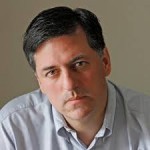 SERGIO TRONCOSO is the author of Crossing Borders: Personal Essays, From This Wicked Patch of Dust and The Last Tortilla and Other Stories, which won the Premio Aztlán and the Southwest Book Award. He received his undergraduate degree from Harvard College and two graduate degrees from Yale University. A resident faculty member of the Yale Writers’ Conference, he lives and works in New York City
SERGIO TRONCOSO is the author of Crossing Borders: Personal Essays, From This Wicked Patch of Dust and The Last Tortilla and Other Stories, which won the Premio Aztlán and the Southwest Book Award. He received his undergraduate degree from Harvard College and two graduate degrees from Yale University. A resident faculty member of the Yale Writers’ Conference, he lives and works in New York City
Posted: September 27, 2015 at 5:15 pm





